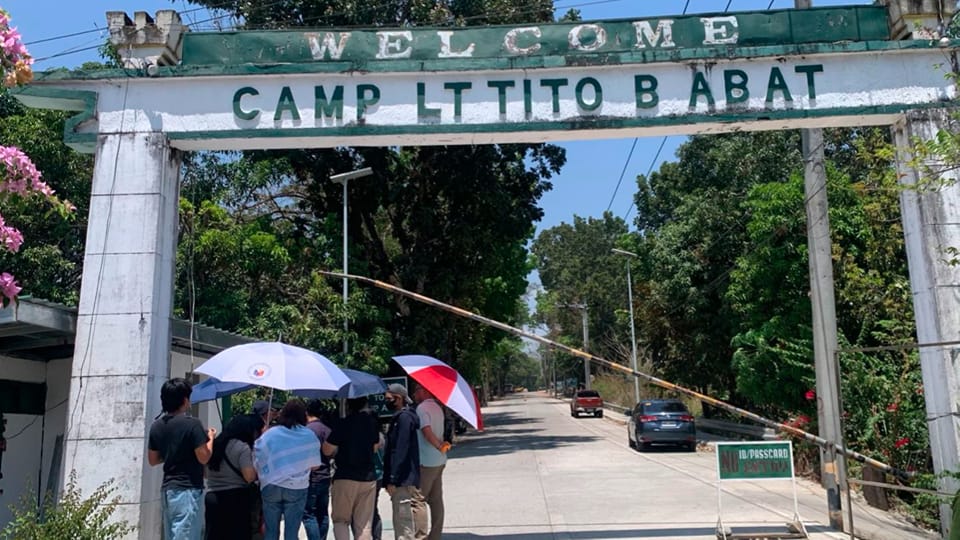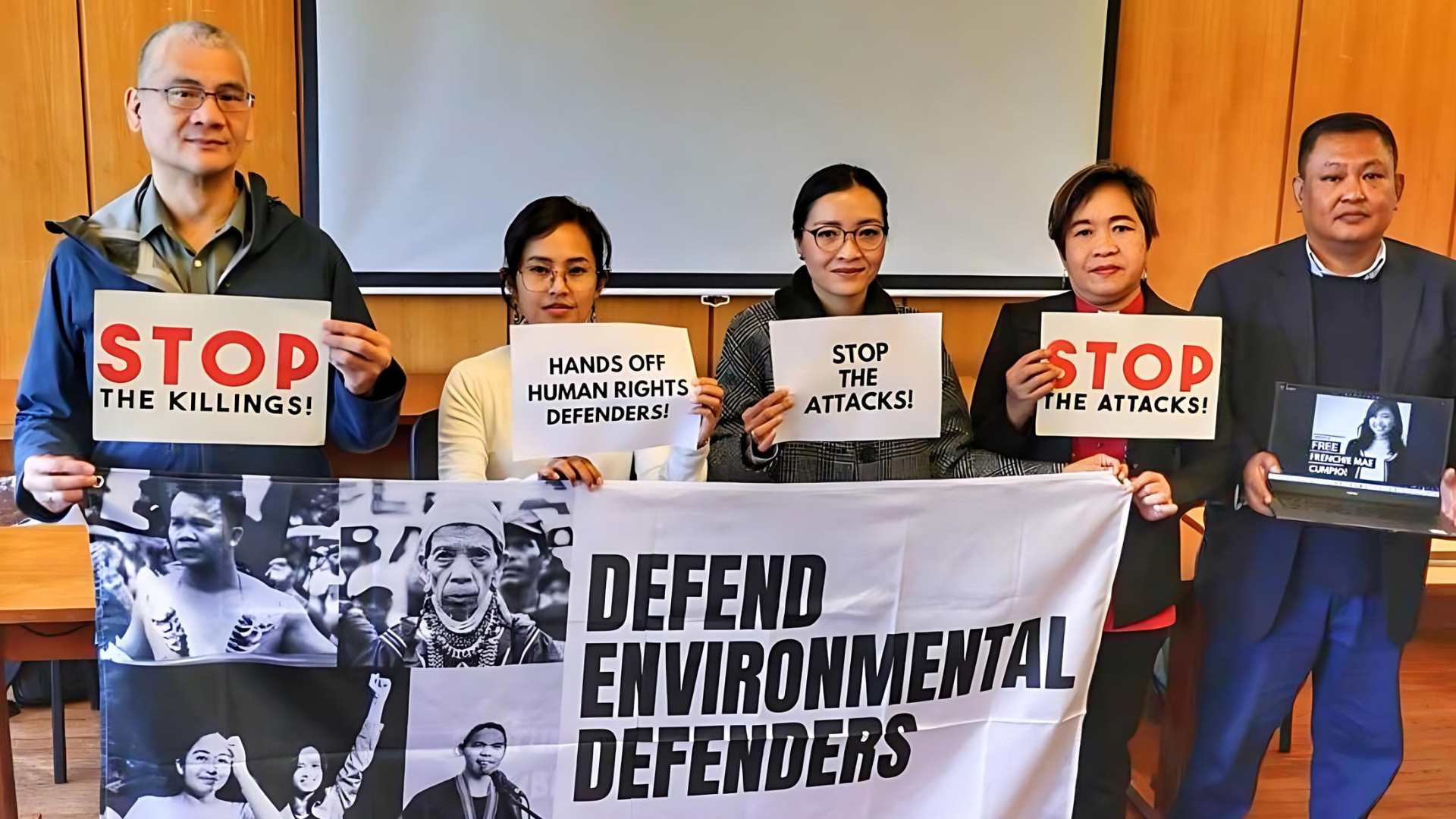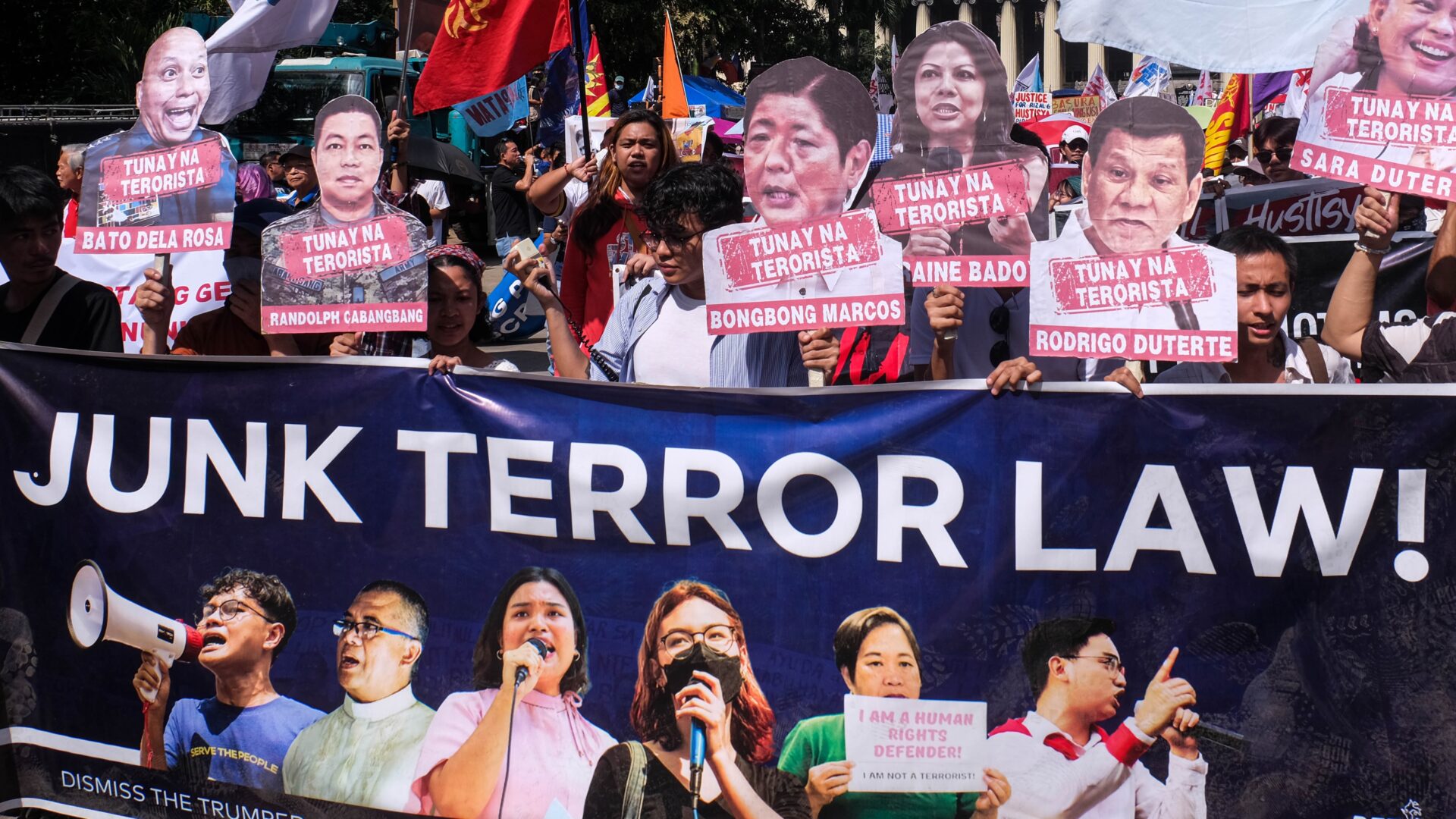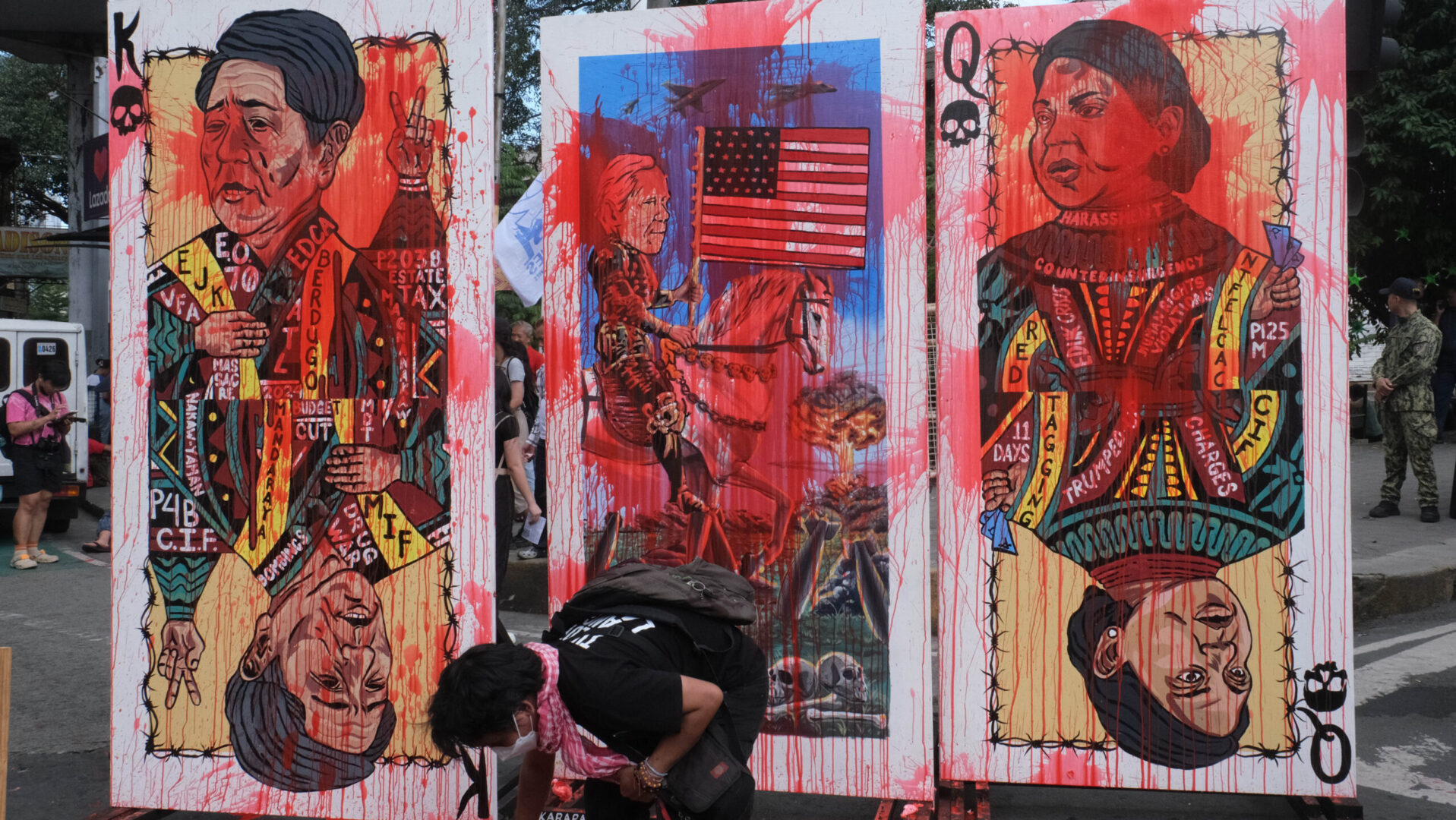Killings, militarization drive Mindanaoans to Manila journey
Fourteen year-old Jomari Alameda saw his father killed in front of him. Last October 24, Henry Alameda and his son Jomari were just heading to work on their corn fields, when three armed men barged into their house. They demanded that Henry, a leader of the Manobo farmers group Mapasu (Malahutayong Pakigbisog Alang sa Sumusunod), […]


Fourteen year-old Jomari Alameda saw his father killed in front of him.
Last October 24, Henry Alameda and his son Jomari were just heading to work on their corn fields, when three armed men barged into their house. They demanded that Henry, a leader of the Manobo farmers group Mapasu (Malahutayong Pakigbisog Alang sa Sumusunod), go with them into the forest to talk with military soldiers.
Two of the men were in military uniform, while one was in civilian clothes. Henry told them, “Why don’t we just talk here? Who knows what you will do to me?” Those turned out to be his last words.
Jomari could hardly believe what happened next. One of the uniformed soldiers took out his gun and shot his father–once in the forehead, twice in the chest. Henry’s youngest child ran out of the house in fear.

Jomari hails from Brgy. San Isidro, Lianga, Surigao del Sur, and is one of around 350 people from Mindanao who are currently on a journey to Manila to demand an end to the militarization of their communities. Dubbed as “Manilakbayan ng Mindanao para sa Pagkain at Kapayapaan,” the two-week journey to Manila also calls for justice for human rights violations committed by military and paramilitary groups.
In the case of Alameda, Karapatan-Caraga points to members of the paramilitary groups Task Force Gantangan and Bagani Forces, allegedly created by the 58th Infantry Batallion of the Philippine Army.
The group said that days before the killing, Marcos Bocales, commander of one of the paramilitary groups, sent threatening text messages to several Mapasu leaders, saying that it was “time to put bullets in their chests.”
Alameda’s case is not an isolated incident. Most of the hundreds who joined the Manilakbayan are victims or families of victims of killings, abductions, incarceration for trumped-up charges, and harassment. Many have forcibly evacuated their homes due to intense military operations, which include the burning of homes and schools.
In 2014, Karapatan has recorded the forcible evacuation of 39 Lumad communities, affecting 4,735 men, women, and children.
Also joining the Manilakbayan is Nermie Lapatis, 42, who still has a gunshot wound in her right knee. She survived an ambush try last February 5, but her colleague Julieto Lauron died.
Both were on the way to Valencia City, Bukidnon to meet farmworkers campaigning for higher wages, when they were felled by bullets fired by two motorcycle-riding men.

Lapatis, secretary of the farmers group Kasama (Kahugpungan sa mga Mag-uuma sa Bukidnon) said that the military wanted her dead. Two years ago, another colleague, anti-mining leader Jimmy Liguyon, was killed in San Pablo, Bukidnon.
“I moved my family to another municipality for our safety. But it seems like there is no safe place for us who struggle,” she said.
According to Karapatan, there are currently 55 combat battalions of the Armed Forces of the Philippines deployed in Mindanao. This represents 60 percent of the country’s armed forces, or around 50,000 troops.
The deployment is part of President Aquino’s counter-insurgency program, Oplan Bayanihan. According to rights groups, Oplan Bayanihan does not only aim to wipe out the revolutionary New People’s Army, but also unarmed Lumads who oppose large-scale mining and cash crop plantations that threaten their livelihood.
According to Manilakbayan spokesperson Fr. Christopher Ablon, “Agro-industrial and mining corporations sap out our ancestral lands’ natural resources and drive away the people.”
The Manilakbayan will hold a camp-out in Manila, and make the rounds of government offices and agencies to assert their demand to pull-out military troops in schools and civilian places, disband paramilitary groups, and investigate human rights violations in Mindanao.
Their series of protest actions will culminate on December 10, International Human Rights Day.




